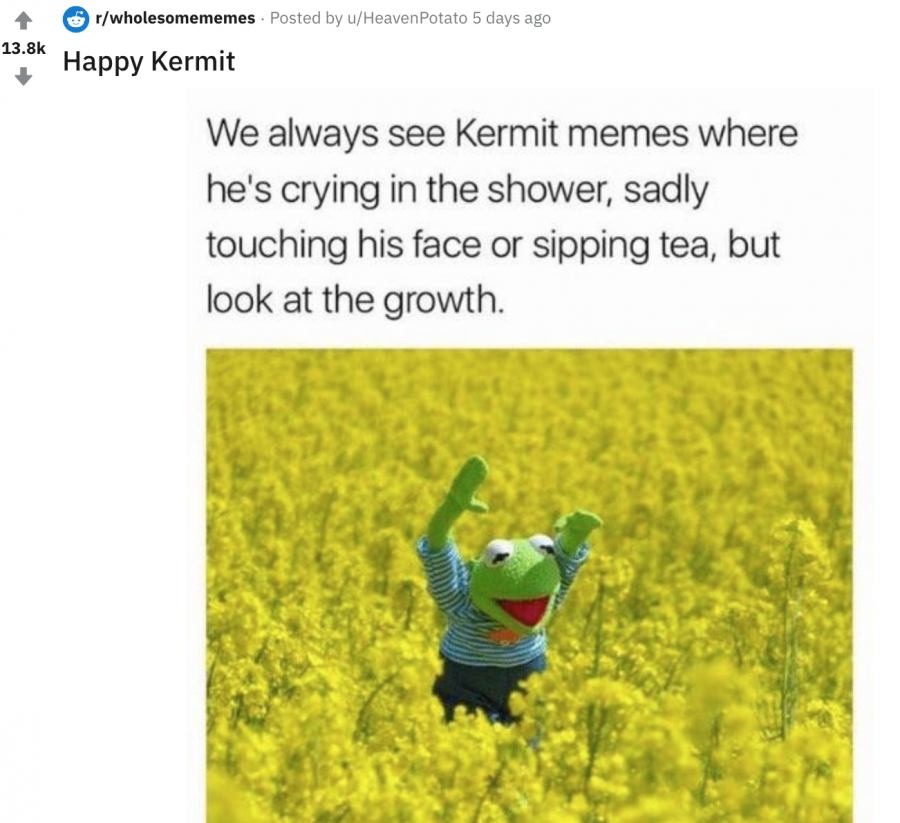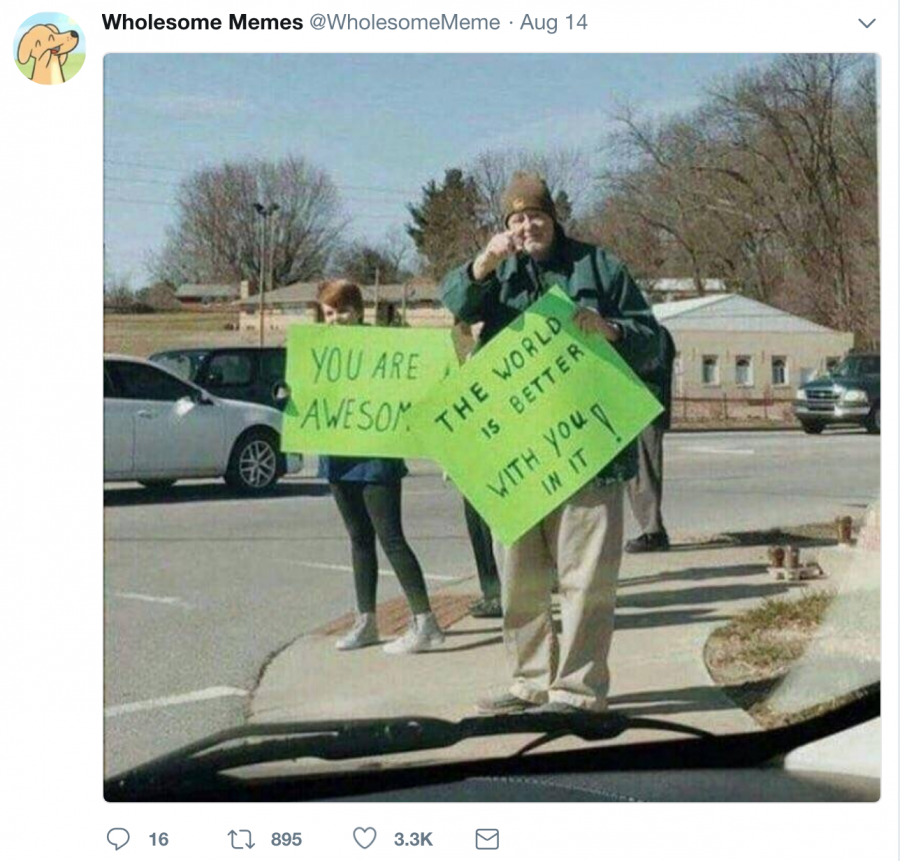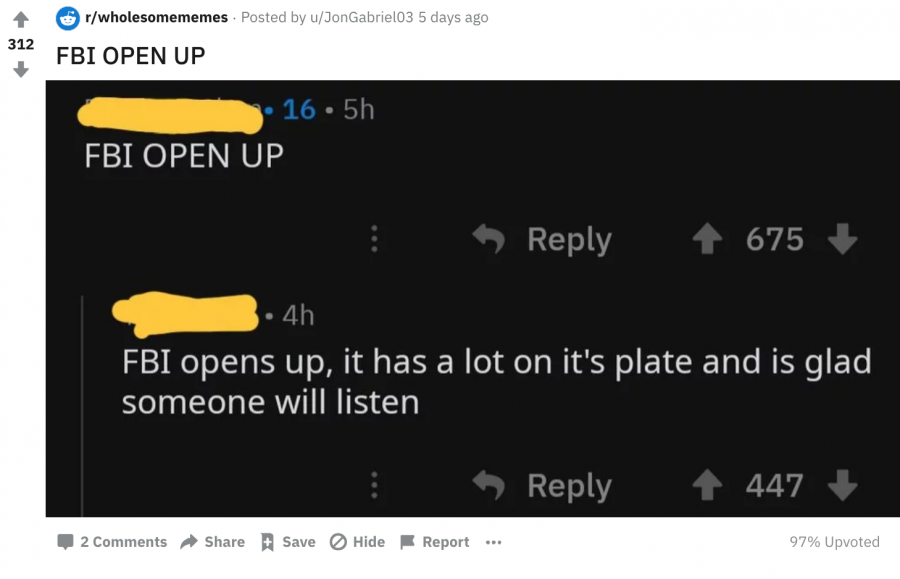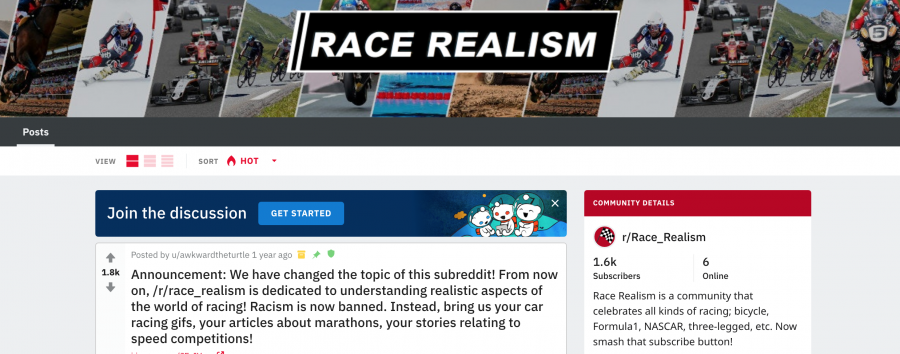
What is the wholesome internet? How wholesome memes became a trend
If you’re not yet familiar with the wholesome internet, it’s time you get acquainted with it - it's been around for a while already. And there’s a reason why wholesomeness has become an online trend.
I don’t know about you, but I certainly sometimes get tired of the endless vile & bile and ranting & raving online. Anonymous threats, unsolicited dick pics, random strangers insulting each other in a random person’s mentions on Twitter, stalking and shaming, racism and misogyny of the most violent sort, and so on and so on.
But fret not: the internet can also be oh, so wholesome. Some months ago Mashable highlighted the phenomenon of the wholesome internet: “The internet is mostly bad, and evaluating whether a dog photo would please the Women's March organizers is not going to elicit sweeping societal change. But we'd be remiss if we ignored the impact memes have on our political reality. After all, the alt-right was basically memed from a fringe group into a mainstream nightmare. Maybe we can meme the wholesome stuff into reality, too.”
Wholesome memes are indeed a ‘thing’ now. You can find some of it on Reddit, Twitter and Facebook, to mention only a few examples.

Wholesome happy Kermit https://www.reddit.com/r/wholesomememes/comments/9gu25b/happy_kermit/
It might be that what you’re now thinking is some or all of the following: This is delusional – there are so many people wrong on the internet and so many things wrong in the world that we don’t have time for this! This is a neoliberal plot! Positive psychology gone too far! There’s nothing to be happy about! If I spend time being wholesome, the Evil People will win! I must go and mock them on Twitter with my ironically detached memes!

Wholesomeness on Twitter https://twitter.com/WholesomeMeme/status/1029442647847575552
Given how accustomed we are to thinking about the internet as a dreadful place, and political discourse as a blazing dumpster fire (which it largely is), cynicism is perhaps not all that surprising as a reaction. Nor is the automatic response that we’ll just have to continue shouting at each other on Twitter because – well, otherwise the Evil Ones will be shouting louder, and that means they will win.
However, it turns out that, as the BBC recently put it, “In 2018 'wholesome' isn't just cutesy - it's actually pretty woke.”
Wholesome internet trolls
The most interesting example I’ve seen of the wholesome internet is the sudden turn of events on the subreddit /r/Race_Realism. Originally a place where white supremacists would gather to express their ‘views’ on race, it suddenly became all about actual races.
Something similar had already earlier happened on the subreddit /r/Stormfront, originally a site for all things neo-Nazi. In a wholesome move, a number of Reddit users took over, and /r/Stormfront is now dedicated to discussions on…yes, actual storms, and the weather in general. The people taking over from the racists are what are now known as ‘wholesome internet trolls’.
Regardless of what we think about wholesomeness online – call it naïve and stupid (you’re just ignoring the fact that the world is an awful place, and this is just an inspirational way of distracting yourself from that), or a waste of time and useless (the racists will always launch new subreddits so being wholesome means you lose) – there’s an interesting question to ponder here regarding the state of the internet (not to mention humanity).
When it comes to the state of the internet, I find myself thinking about Angela Nagle’s conclusion to her 2017 book Kill all Normies: Online Culture Wars from 4chan and Tumblr to Trump and the Alt-right: “The online culture wars of recent years have become ugly beyond anything we could have possibly imagined and it doesn’t look like there is any easy way out of the mess that has been created. (…) Now, one is almost more inclined to hope that the online world can contain rather than further enable the festering undergrowth of dehumanizing reactionary online politics now edging closer to the mainstream but unthinkable in the public arena just a few short years ago.” (p. 120)
What do you want to meme into reality?
The internet may indeed be ugly beyond anything we could have possibly imagined, but has also suddenly become ‘real’ for many people, as they’re discovering the fact that online spaces are social spaces like any other, and (spoiler alert) people who are violent, racist and sexist online can also be the very same thing offline. So when we talk about ‘the internet’, whether we like it or not, we’re talking about something that is part of our lives, not a distinct reality.
There are a lot of different forms of ugliness to talk about, and I also originally planned to write this column about one or the other of all the Awful Online Things: fake news, rampant racism and misogyny, doxxing and surveillance, you name it. Even with all the awesome wholesomeness, thinking about our everyday online experiences as well as Nagle’s book (along with many others that have appeared recently, such as New Dark Age: Technology and the End of the Future by James Bridle, Misogyny Online: A Short (and Brutish) History by Emma A. Jane, or Jaron Lanier’s latest, Ten Arguments for Deleting Your Social Media Accounts Right Now) one cannot but stop to ponder the question: what is wrong with people?
The unwholesome state of the internet
A recent article in the MIT Technology Review about a new breed of people, the DFIO (the Depressed Former Internet Optimists), was essentially about exactly that. The DFIO are a group of people who have become disillusioned by what’s going on on the internet – how it’s so far removed from the optimist visions of old where we’d all end up holding hands around the camp fire because of the wonderful technology we have.
The article proposes that “Both Optimism and Pessimism make the mistake of assuming that the internet has inherent features, but like any technology conceived of and built by humans, it is shaped by human struggles, by the push and pull of a multitude of interests and schools of thought. What’s needed is a coalition around a New Optimism—one that celebrates what’s working, is honest about what isn’t, and articulates a path forward grounded not so much in technological fixes as in a richer understanding of trust, identity, and community”.
Given the state of the internet, for many this seems like uncalled-for idealism. ‘Trust’ and ‘community’, you say? Screw that, I’m going to troll strangers instead, and be online 24/7 to silence the feminists!
Continuous aggression, attacks and abuse slowly wear people down. On a larger scale, we can talk about ‘slow violence’ towards things such as the shape of public debate and political discourse.
To suggest that “The next frontier in internet culture is wholesome memes about loving your friends” may be an unrealistic prediction. But at least I find myself following fewer and fewer people online, choosing ones that don’t add to the dumpster fire, don’t have aggression towards [name any group of people different from yourself] as their modus operandi, and who have something reasonable to say without constantly attacking other people.
I assume that I’m not alone in thinking this – and I’m also assuming that the ‘wholesomeness’ is most likely not going to be a solution, but is more than anything a reaction to the vileness of online discourse that simply takes the focus of people’s online activities to the other extreme: from vile to nice.

Reddit wholesomeness https://www.reddit.com/r/wholesomememes/comments/9gwjvw/fbi_open_up/
Retreating to exclusively subscribing to cat videos and heart-warming memes is of course exactly what the aggressors want – just look at the amount of cheering and celebration after some prominent women deleted their Twitter accounts as they simply couldn’t and wouldn’t put up with the daily abuse anymore.
The wholesomeness trend throws into sharp relief the usual state of affairs online.
The ugly things that happen online are also not always spectacular, extremely visible and easy to recognise – they’re also about what Rob Nixon in a different context has called ‘slow violence’. By this he means “a violence that occurs gradually and out of sight, a violence of delayed destruction that is dispersed across time and space, an attritional violence that is typically not viewed as violence at all.” (p. 2) It’s the violence of certain types of domestic abuse and environmental calamities, for instance (p. 3): its effects only become palpable gradually.
This is exactly the kind of thing that often happens online: continuous aggression, attacks and abuse slowly wear people down. On a larger scale, we can talk about ‘slow violence’ towards things such as the shape of public debate and political discourse.
Going wholesome?
As Nagle said, “it doesn’t look like there is any easy way out of the mess that has been created.” The internet will not become ‘wholesome’ overnight. I also didn’t choose to write about this to ask you to go wholesome (though they do have the best memes).
The point rather is that the wholesomeness trend throws into sharp relief the usual state of affairs online. The trend also alerts us to the fact that the internet can be done differently, and instead of hand-wringing and pearl-clutching about how awful everything is, each of us can also contribute to the state of how things are.
Sharing wholesome memes is not going to solve structural problems in the world, but it should make you think about where you want to put your attention online, what kinds of things you want to make more visible, and what kind of an online sphere you’d like to be part of. Being media literate is also about being able to make decisions about that. What do you want to meme into reality?
